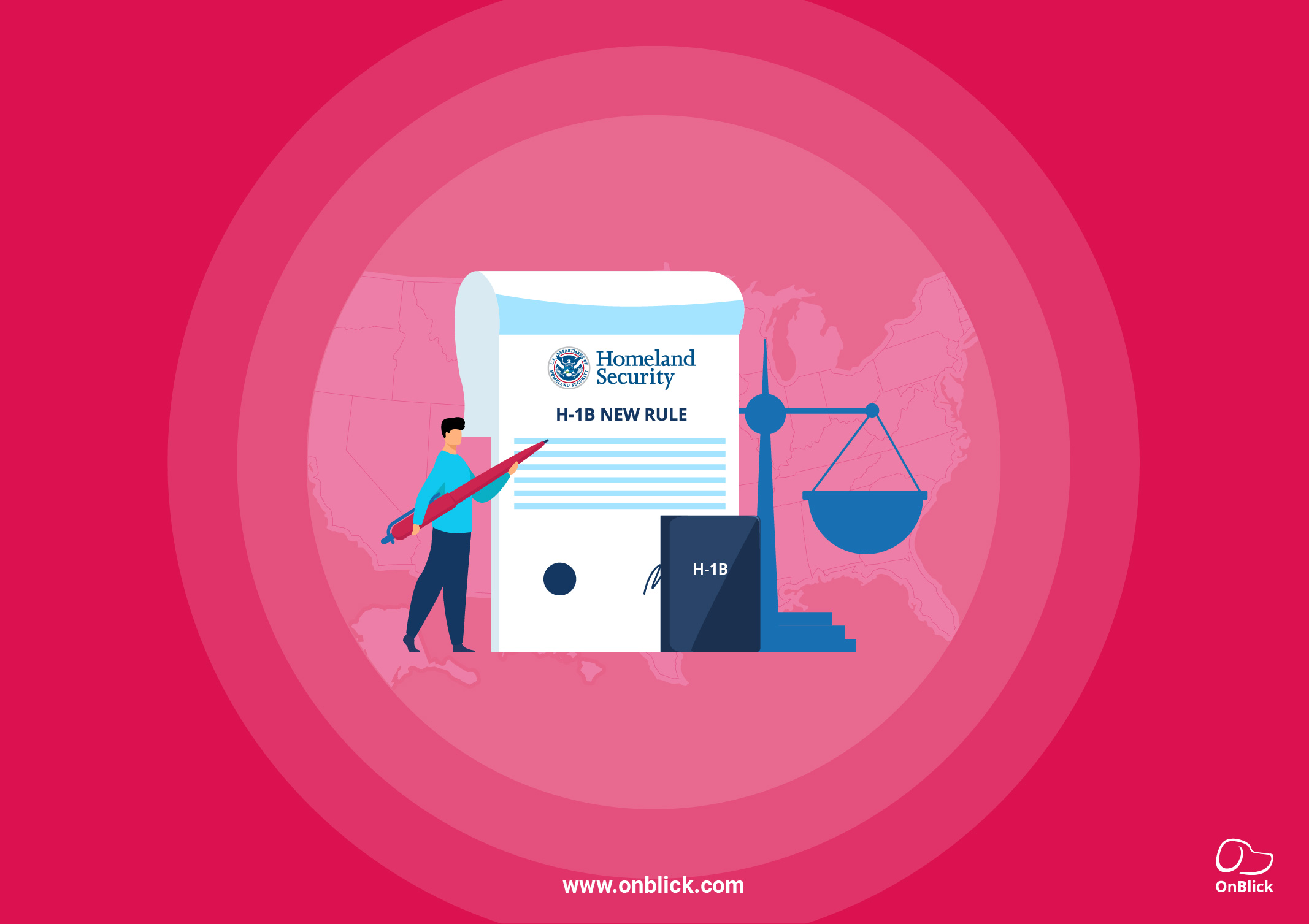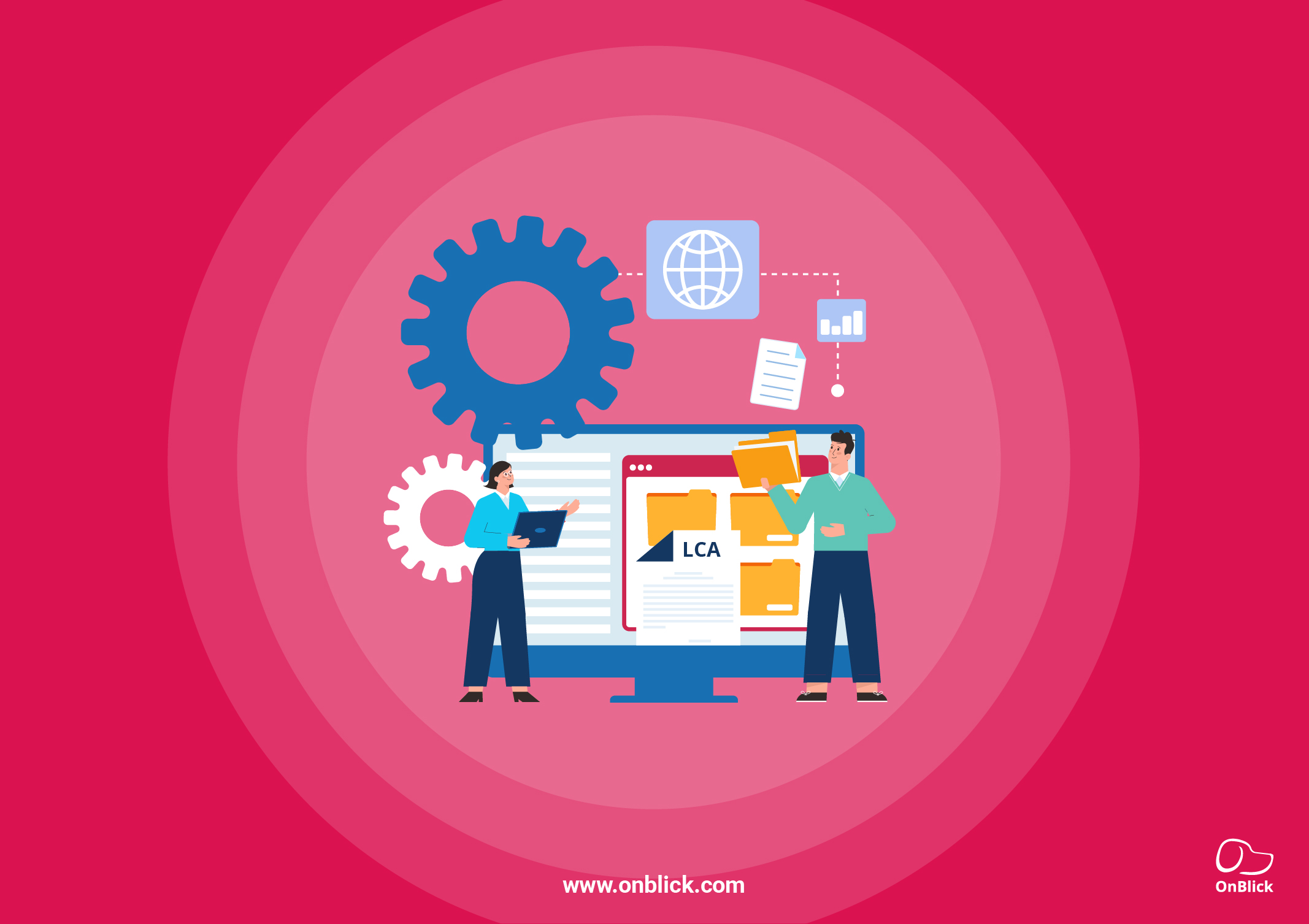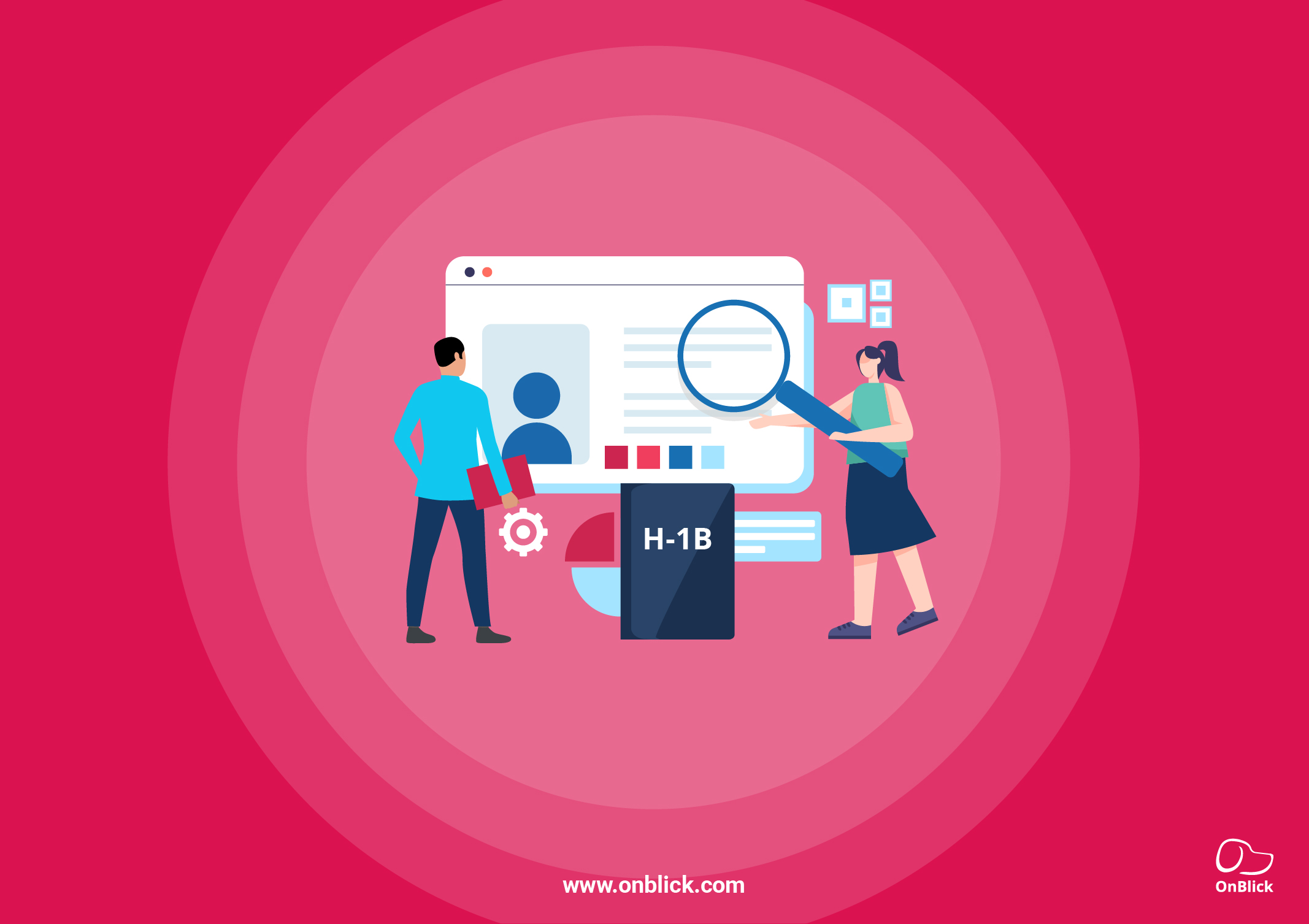The H-1B specialty occupation worker program is getting a major update. The Department of Homeland Security (DHS) and U.S. Citizenship and Immigration Services (USCIS) have recently published a Notice of Proposed Rulemaking (NPRM), aiming to modernize the program by streamlining eligibility requirements, improving efficiency, offering more benefits and flexibility to employers and workers, and strengthening integrity measures. This could have a big impact on how the H-1B program works.
In this blog, we'll break down these proposed changes and see how they might affect the H-1B visa program.
Understanding the H-1B Visa
The H-1B visa program is a vital pathway for U.S. employers to hire skilled foreign workers in specialized fields. It's significant because it allows American businesses to access talent with expertise in areas requiring advanced knowledge, often in science, technology, engineering, and mathematics (STEM). These professionals play a crucial role in contributing to the growth and competitiveness of U.S. industries. The H-1B program has been instrumental in addressing workforce shortages, filling positions with qualified individuals, and maintaining the nation's status as a global innovation hub.
Highlights of the Proposed H-1B Program Reforms
Objective of Modernization: The proposed rule aims to make the H-1B program more efficient and in line with the Biden-Harris Administration's focus on attracting global talent. It intends to reduce undue burdens on employers and prevent fraud and abuse within the immigration system. This will translate to a smoother and more reliable process for both employers and foreign workers seeking H-1B visas.
Specialty Occupation Definition: The H-1B program allows U.S. employers to hire foreign workers for specialty occupations that demand highly specialized knowledge and a bachelor's degree or higher in the specific field. The proposed rule seeks to clarify and potentially expand the scope of eligible degrees, emphasizing the importance of a direct connection between the required degree and job duties. This could open up opportunities for a wider range of professionals in specialized fields to apply for H-1B visas.
Changes to Registration Process: Under the current system, the more registrations submitted on behalf of an individual, the higher the chance of selection in the H-1B lottery. The proposed rule seeks to level the playing field by allowing each unique individual to enter the selection process once, irrespective of the number of registrations submitted for them. This change aims to reduce the advantage of submitting multiple registrations, providing beneficiaries with more job offer choices and improving the overall fairness of the selection process.
Enhancements for Employers and Workers: The proposed rule introduces several improvements for employers and workers. It codifies that adjudicators should generally defer to prior determinations when no underlying facts have changed during a new filing. This will reduce redundancy and streamline the process. The rule also expands certain exemptions to the H-1B cap for nonprofit entities, governmental research organizations, and beneficiaries not directly employed by a qualifying organization, enhancing opportunities for a wider range of employers and applicants. Additionally, it extends flexibilities for students transitioning from F-1 visas to H-1B visas and establishes new eligibility requirements for rising entrepreneurs, offering more pathways to H-1B visa status.
Strengthening Integrity Measures: To minimize misuse and fraud in the H-1B registration process, the rule prohibits related entities from submitting multiple registrations for the same beneficiary. USCIS is given the authority to conduct site visits, and refusal to comply with site visits may result in petition denial or revocation. These measures are designed to protect the integrity of the program and ensure that only eligible and legitimate candidates secure H-1B visas.
Key Changes in a Nutshell
- Eliminating multiple entries for the same employee
- Allowing employers to submit passport information for each employee
- Making it easier for entrepreneurs to utilize the H-1B program
- Allowing job offers to be remote
- Extending the "cap-gap" provision for international students
- Conducting more and stricter site visits
- Using a stricter definition of a "specialty occupation"
Impact of the Changes
The proposed changes to the H-1B program are expected to have several effects, including:
- Enhancing the measures to deter employers from exploiting the system by submitting multiple entries for the same employee.
- Facilitating enhanced monitoring and administration of H-1B visas by USCIS.
- Making it easier for entrepreneurs to start and grow businesses in the US.
- Allowing more international students to stay in the US after graduation.
- Reducing fraud in the H-1B program.
- Ensuring that H-1B visas are only issued to workers who have the skills and qualifications necessary for the job.
To sum up, the proposed reforms to the H-1B visa program represent a significant step towards making the system more efficient, transparent, and equitable. These changes, including the streamlining of registration processes and clarifying eligibility criteria, hold the potential to positively impact both employers and skilled professionals seeking H-1B visas. However, it's important to recognize that the true impact will be shaped by how these rules are implemented and the feedback received during the upcoming 60-day public comment period. As the DHS works to modernize the H-1B program, the future holds the promise of a more accessible and fair immigration process for highly skilled workers looking to contribute to the U.S. economy.
OnBlick will continue to monitor the NPRM and offer more details as they become available. If you wish to know more about OnBlick, book a quick demo today.

.gif)

.png)
.png)











